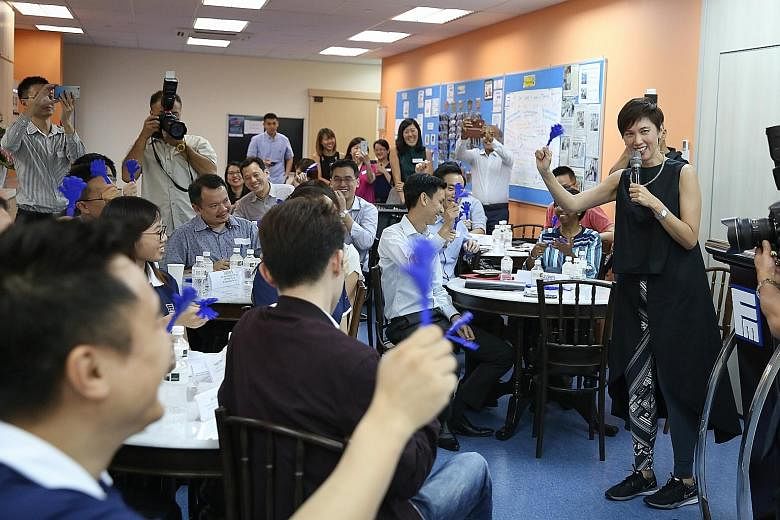Often, sales and application engineer Steven Ngo, 42, is late for work, arriving after the 8am start time at precision engineering firm Feinmetall Singapore.
The reason: He takes one son to primary school and another to a babysitter before heading to his workplace in Marsiling.
But those days of being late are over. Early this year, he took up his firm's flexi-work arrangement and chose to start work at 8.30am.
On the other hand, finance manager Benjamin Tan, 26, chose to work from home. He is allowed to do so two days a month.
"It saves me three hours of travel time when I don't go to the office," he said. "Also, there are fewer distractions at home, and I can concentrate fully on writing reports and strategising. It improves my work efficiency."
The flexi-work arrangements were introduced a year ago, after Feinmetall's 60 workers were surveyed on their needs. Staff can start work between 7.30am and 10am, and work from home two days a month if their job scope allows it.
Feinmetall is among more than 250 companies to adopt the new tripartite standard on flexible work arrangements, which Second Minister for Manpower Josephine Teo launched yesterday.
Its general manager Sam Chee Wah said about half the staff are on either of the two schemes. Initially, he said, it was difficult to keep track of staff and call for meetings, but he has since worked out a more structured meeting schedule that has also helped to boost productivity.
"Today, we can see the benefits and feel staff morale is strong. Flexi-work arrangements have helped us attract and retain staff, especially the younger generation, who want some control over their working hours," he said.
Other employers that adopted the new standard include The Soup Spoon, the Housing Board and Singapore Press Holdings.
At CIMB Bank Singapore, staff can work from home up to three days a week and go to work during off-peak hours. A survey it conducted found staff felt telecommuting saved time and expense, and gave them more time for family matters, said Mr Michael Chee, the bank's head of human resources and administration.
Of its 1,200 employees, 78 telecommute and 21 are on flexi-work hours.
Flexi-work arrangements are also offered to the 30 office-based staff of sustainable technology company Netatech Engineering.
One design engineer works from home daily, while some employees work part-time, said its director of operations Elinda Gan.
"Tasks are set out clearly so they know what is expected. The flexibility has helped us tremendously. Instead of abusing it, the staff feel they must perform because of the trust the company puts in them," she added. "It also helps us attract people and maintain staff longevity as they don't have to quit if they have family issues."


